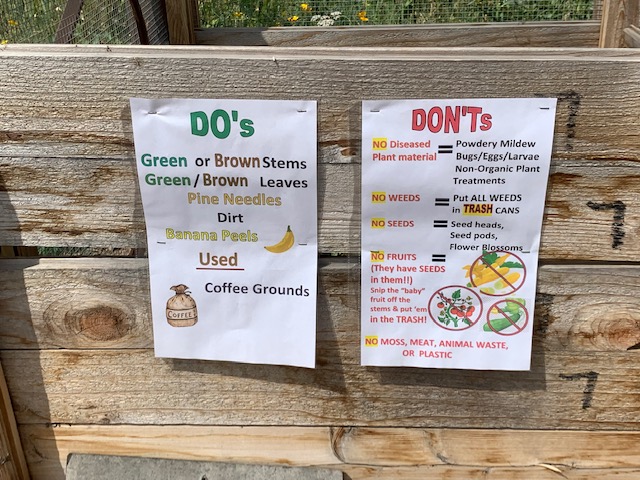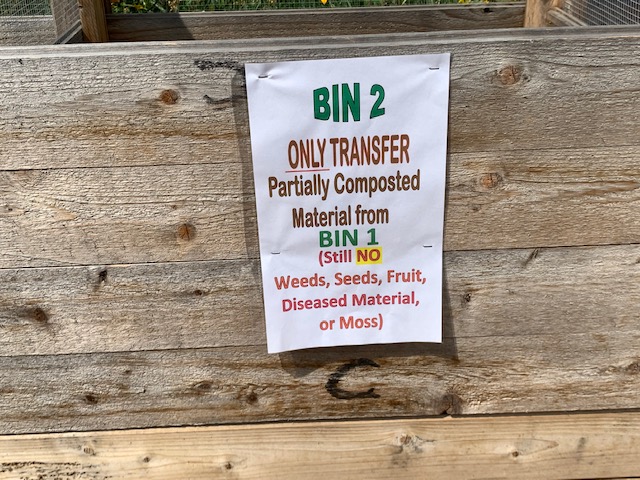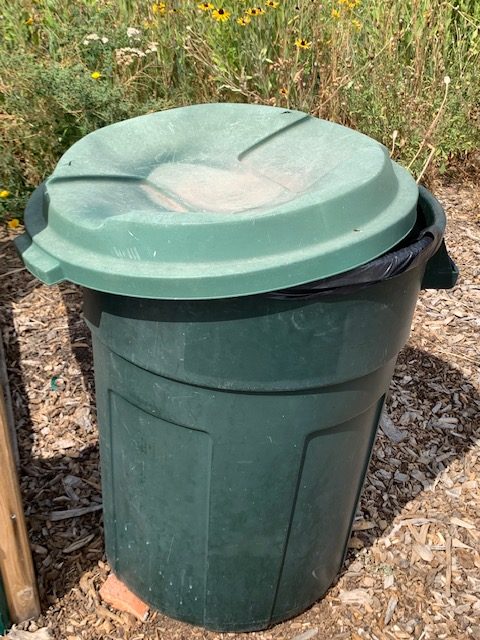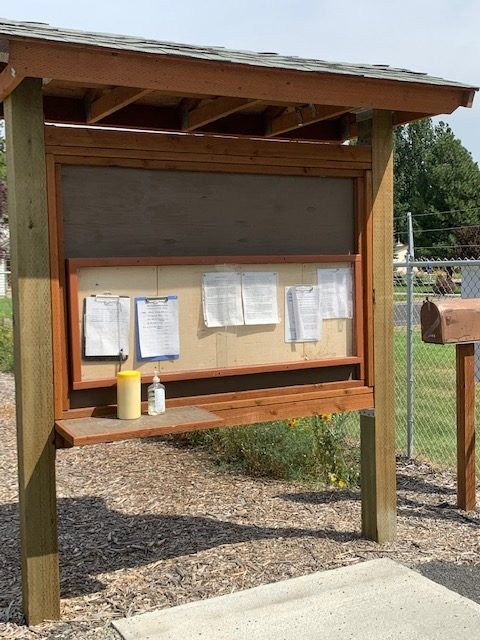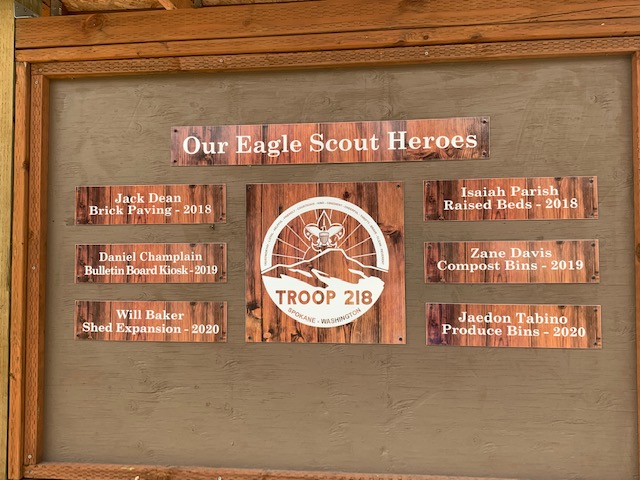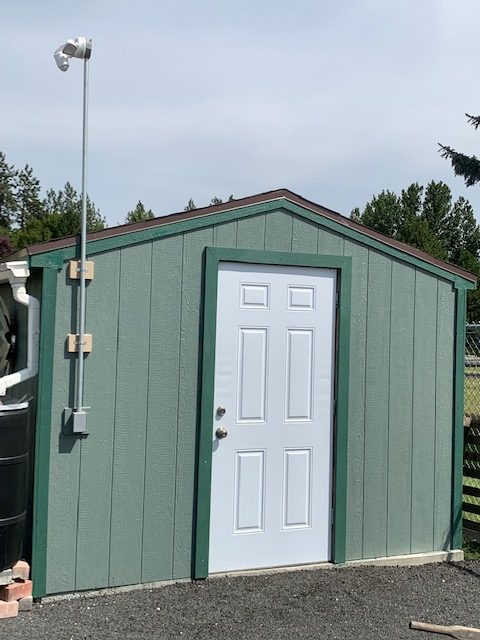Located on a fenced acre adjacent to the Covenant United Methodist Church campus, Eden Community Gardens consists of over 45 raised beds, available for a modest rental fee for the duration of the growing period (approximately May-October.)
Gardeners and Visitors are requested to avoid blocking access to USPS Mail Boxes when they park on Gleneden Dr.
PLOTS
- The raised beds are divided into Organic and Non-organic sections. (Gardeners can select the area they prefer when filling out the on-line Plot Request Form.)
- Ground-level raised beds are 4′ x 8′ and 4′ x 12′ with mulched, six-foot aisles between the beds.
- Waist-high beds are available in 2′ x 8′ and 2′ x 12′ sizes. (There are a limited number of these, and they should only be requested by gardeners with genuine mobility issues.)
- All beds are filled with high-quality, rich soil. The organic sections use a certified organic mixture.
- Each bed includes automatically controlled drip irrigation. The amount of water is adjusted to accommodate changes in weather and plant growing conditions.
- Yearly soil restoration/clean-up
SECURITY
- A seven-foot deer fence surrounds the garden, which keeps out most critters.
- Gates are equipped with combination locks. The code is only given to registered gardeners.
- SOLAR POWERED Lights illuminates the garden after darkness falls.
- Video cameras are in place for additional security.
AMENITIES
- Other amenities include a bubbling central fountain and benches, with plans for a picnic table to be added.
- For your comfort we have an ADA accessible unisex restroom and also drinking fountains, and–with Covid-19 protocols in place–they are now available for use. ADA accessible Restroom & beds
SCOUT PROJECTS
POLLINATOR MISSION
Birds, bats, butterflies, moths, flies, beetles, wasps, small mammals, and most importantly, bees are pollinators. They visit flowers to drink nectar or feed off of pollen and transport pollen grains as they move from spot to spot. Somewhere between 75% and 95% of all flowering plants on the earth need help with pollination – they need pollinators. Pollinators provide pollination services to over 180,000 different plant species and more than 1200 crops. That means that 1 out of every three bites of food you eat is there because of pollinators. In addition to the food that we eat, pollinators support healthy ecosystems that clean the air, stabilize soils, protect from severe weather, and support other wildlife.
Here at ECG we use ON-SITE bee hives as our primary pollinators to ensure that we have healthy plants and abundant harvests in our raised beds and food bank garden. These hives are tended by Ronda Hain.
In support of our bees, wildflowers surround the perimeter of the garden, increasing the diversity of plants from which the bees feed on and collect pollen. Also, the fountain in the center of the garden provides a constant supply of water, which is necessary for the bees’ survival.
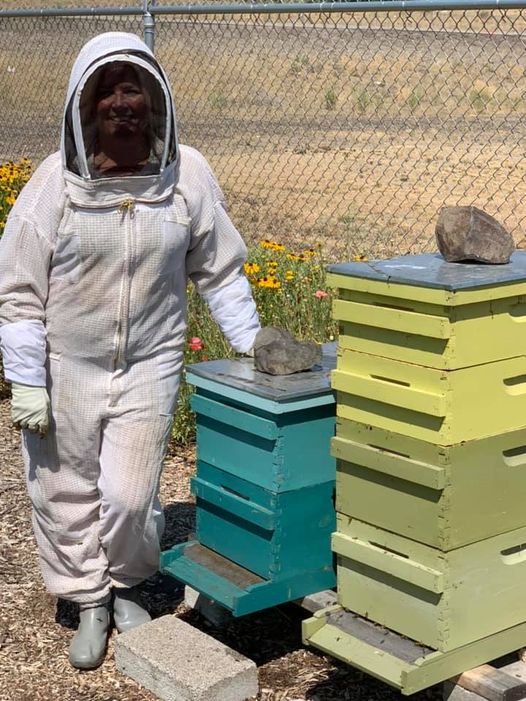

If we want to talk dollars and cents, pollinators add 217 billion dollars to the global economy, and honey bees alone are responsible for between 1.2 and 5.4 billion dollars in agricultural productivity in the United States.
Honey bees contribute nearly $20 billion to the value of U.S. crop production. This contribution, made by managed honey bees, comes in the form of increased yields and superior quality crops for growers and American consumers. A healthy beekeeping industry is invaluable to a healthy U.S. agricultural economy. Many of the country’s crops would not exist without the honey bee at bloom time. Crop yield and quality would be greatly reduced without honey bee pollination. As honey bees gather pollen and nectar for their survival, they pollinate crops such as apples, cranberries, melons and broccoli. Some crops, including blueberries and cherries, are 90-percent dependent on honey bee pollination. One crop, almonds, depends entirely on the honey bee for pollination at bloom time. Each year, American farmers and growers continue to feed more people using less land. They produce an abundance of food that is nutritious and safe. Honey bees are very much a part of this modern agricultural success story. It’s estimated that there are about 2.7 million bee colonies in the U.S. today, two-thirds of which travel the country each year pollinating crops and producing honey and beeswax. The California almond industry requires approximately 1.8 million colonies of honey bees in order to adequately pollinate nearly one million acres of bearing almond orchards.
For more information, check out these websites:
https://www.abfnet.org/page/PollinatorFacts
https://www.pollinator.org/pollinators
https://www.xerces.org/pollinator-conservation/about-pollinators
PLANS FOR THE FUTURE
We are currently working on adding a Gazebo and a Greenhouse. The Gazebo will be the central focus of gatherings and events, like Barbeques and Concerts; the Greenhouse will be the home of new seedlings.
COMPOST TEA
Compost tea is a distillation of aerobic bacteria, fungi, nematodes & other microbes, which–when combined with water–work to create a liquid fertilizer. This “tea” is produced on-site at ECG, inside the Garden Shed. Barry Karalfa, Garden Coordinator, mixes up several batches per season, and distributes it among the gardeners at their request.
COMPOST BINS
Two 3-section Compost Bins were constructed by an Eagle Scout, and are available to Eden Gardeners to use. Because we strive to use best practices for organic gardening, only organic (or organically treated) materials should be added to the bins. Signs are posted on the bins, encouraging Gardeners to be careful about their additions to the bins.
